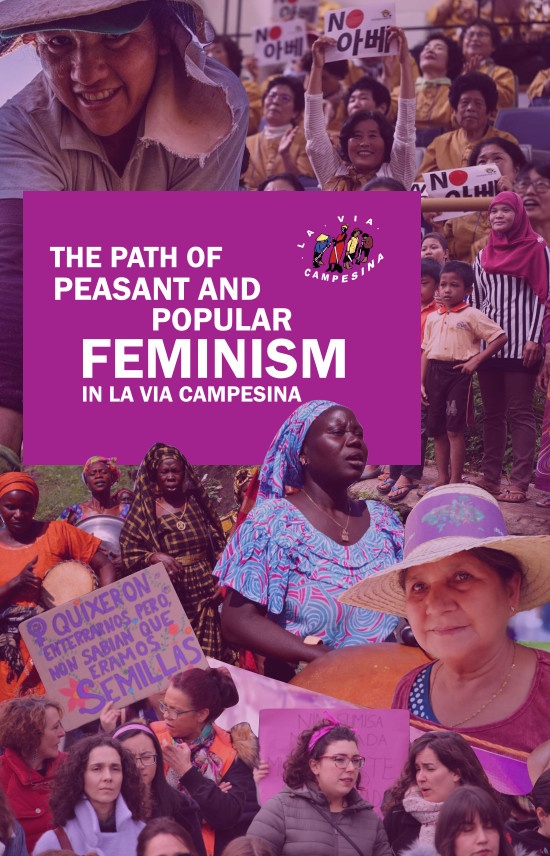
La Via Campesina, presents the publication “The Path of Peasant and Popular Feminism in La Via Campesina” with the aim of strengthening the training processes of the Movement and to build Peasant and Popular Feminism as a political tool against oppression and violence. This document compiles the historical knowledge accumulated by Peasant and Popular Feminism in identifying the political challenges that exist in the historical moment that we live in, and thus contribute to the analysis and collective reflections to build a plural movement that respects diversities.
The publication is split into four parts: the first one looks back at the conquests of women inside LVC, up to Peasant and Popular Feminism as something to be built collectively. The second chapter highlights the role of women in the Peasants’ Rights Declaration adopted at the UN and highlights the rights achieved with this tool. The third chapter focuses on La Via Campesina’s Global Campaign “End Violence against Women”, the way the campaign is organized and its experience in different territories. Finally, in the last chapter in order to further expand reflections and discussions, we provide a virtual toolbox that will facilitate training and communication processes.
Since its very beginning La Via Campesina has sought to encourage the participation of rural women at all levels of action, power and representation in the building of an international movement that is broad, democratic, politically and socially committed to the defense of peasant agriculture, Food Sovereignty, the struggle for land, justice, equality and to eradicate all forms of gender discrimination and violence.
Recognizing the contribution and participation of women in member organizations has not been an easy task, notably because of patriarchy and the sexism rooted in societies. These have a negative impact even on the practices of comrades and of the organizations that belong to the movement. LVC’s women speak of two revolutions: one that burdens problems with gender relations within the movement, and a broader one aimed at making a revolution inside societies for justice, equity and the emancipation of human beings.

